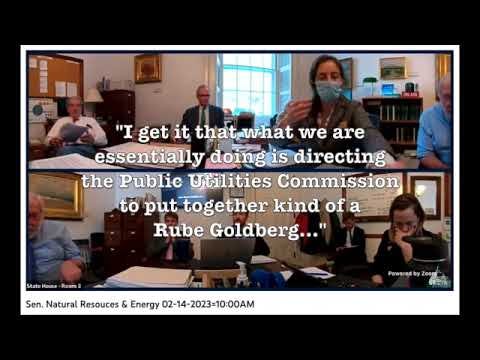Who Owns That Clean Heat Carbon Credit?
More confusion/delay ahead for carbon credit banking scheme.
My last article highlighted the fact that the Public Utilities Commission (PUC) is only now beginning to contemplate how to write the rules regarding how Vermonters can retroactively “bank” so-called “Clean Heat Credits” back to January 1, 2023, and continue to bank them until the Clean Heat Standard goes fully into effect sometime in 2025.
To recap, the…
Keep reading with a 7-day free trial
Subscribe to Behind the Lines: Rob Roper on Vermont Politics to keep reading this post and get 7 days of free access to the full post archives.



